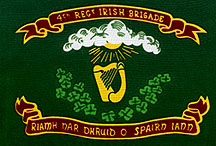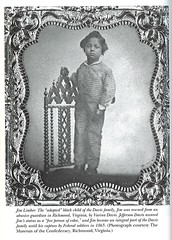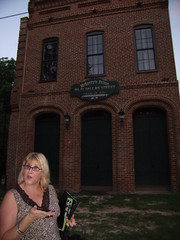LESSON 6: Stories of the Confederate South “Lily”
This piece of short historical fiction is based on events recorded in the diary of William McCarter. He was a Federal soldier in the famed, Irish Brigade. By telling the story of a young girl who was killed when Charleston, Virginia was shelled, his story illustrates the sad effects of the North’s war on the civilian population of the South. For more examples read War Crimes Against Southern Civilians by Walter Brian Cisco and published by Pelican Publishing.
TOPICS AND PROJECTS FOR WRITING AND DISCUSSION:
1. History of West Virginia – West Virginia was founded by Abraham Lincoln’s presidential decree, June 1863. As this story takes place in October of 1862, Charleston was still part of Virginia, though the opening says (to facilitate modern understanding of geography) the setting is in Charleston, West Virginia. The following site has a good summary of the history. http://www.wvtourism.com/spec.aspx?pgID=149 and one can find a summary of West Virginia’s role in the Civil War.
2. The Suffering of the Innocent in Times of War.
3. The Irish Brigade – Read about their history, uniforms, commanders, and role during the Civil War here: http://irishvolunteers.tripod.com/index.htm
4. The flag of the Irish Brigade: (This information and image of the flag is from: http://www.anyflag.com/history/irish.htm)

This flag is one of five regimental designs carried into battle by the New York State Volunteer Regiments. The motto written in old Irish tongue means: “Who never retreated from the clash of spears” The motto is thought to have been suggested by the Irish scholar John O’Mahoney.
5. The Richmond Howitzers: There is a modern day reenactment unit that honors the history of this unit mentioned in the story. You can learn more of them here: http://www.howitzers.com/
6. You can find a biography of General Thomas Francis Meagher at this site: http://irishfreedom.net/Misc.%20news%20items/TFMeagher%20headstone.htm
7. Fenian Brotherhood – One site to learn a little about them is here:
8. Have children sing, “Listen to the Mockingbird.” Read about the origin of the song here: You can find the lyrics here:
9. Have students play a game of checkers.
10. civility – Courteous, polite in word and action. For some thoughtful insights, read this article:
VOCABULARY:
1. transcribe – to listen and record in writing.
2. poncho – in these days rubber coated canvas with a hole that the soldier slipped his head through.
3. gabby – talkative
4. dilemma – A situation that requires a choice between options that are or seem equally unfavorable or mutually exclusive.
5. hamlet – a small village.
6. memento mori – a reminder of death.
RESOURCES:
Mc Carter, William. My Life in the Irish Brigade: The Civl War Memoirs of Private William McCarter,
116th Pennsylvania Infantry. Ed.Kevin O’Brien. Cambridge, MA: De Capo, 1996.
Jed Marum, an internationally known Irish musician, wrote a song about the little girl mentioned in McCarter’s journal. You can learn more of Jed Marum at his website:
LYRICS to “Mama’s Lily” by Jed Marum
She was just her Mama’s Lily
A pretty child, curious and bold
As I stood there with Michael O’Reilly
She might have been seven years old
She’d been placed high atop the piano
And arranged there with love and with care
By an African servant, her nanny
Cutting locks of the little girl’s hair
There were tears soaked locks of here hair.
CHORUS:
And it’s a hard cold edge to the wind tonight
It’s a bitter wind, cuts to the bone
& cruel is fate when its power and its might
To both guilty and innocent are shown
To both guilty and innocent shown
Charlestown was easily taken
Federal batteries had helped clear the way
When we went down to see,
Michael Reilly and me
The Rebel force had melted away
She’s been standing alone in the window
Watching soldiers retreat south and west
There was nothing to do,
When a cannonball flew
Through the window,
And on through her chest
Tore her arm and her heart
From her breast
CHORUS
Now I know we must fight for the union
But what a terrible price must be paid
And to make this land free,
Michael Reilly and me
Well we joined with the Irish Brigade
Now I look through my tears on this Lily
Shattered before she could bloom …
Still through death on her face
Shine her beauty and grace
Though she died from a terrible wound
And no child should ever die from such a wound.



